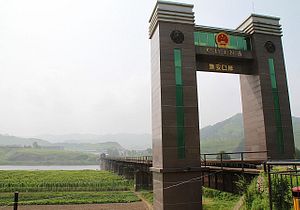Japanese diplomacy on the issue of North Korea has typically focused on coordinating with the U.S. and South Korea. This stance has involved submitting various draft resolutions to the UN Security Council, calling for sanctions to be imposed on Pyongyang. China, meanwhile, tends to be seen as shielding North Korea. The challenge for Japan is that very few countries view North Korea’s nuclear and missile development, abductions and human rights violations as pressing issues.
In fact, only Japan and South Korea have declared the issue of North Korea as their highest priority in terms of diplomacy and security. During top-level talks with Japan, and in recognition of the alliance between Japan and the United States, senior U.S. officials have promised to cooperate in resolving the issue of Japanese citizens abducted by North Korea, a development that was widely reported in Japan. The result is that Japanese people tend to think that North Korea is being treated as a shared issue of grave concern among the international community. In reality, U.S. foreign policy is focused on ISIS, the situation in the Middle East, Russia, Latin America and elsewhere, with North Korea far down its list of priorities. This is not unique to the United States. While the UN Security Council may have adopted resolutions imposing sanctions against North Korea, few countries have been strict about enforcing them. In Southeast Asia, for instance, many nations seek to maintain friendly ties with North Korea, and the United Nations has not gathered enough information on what those ties might imply. In that sense, China is not the only one “shielding” North Korea.
But it is the extent of China’s influence over the North Korean economy that naturally focuses attention on Beijing’s policies. Total trade between the two nations, which amounted to just $490 million in 2000, had swelled $6.86 billion by 2014, a fourteen-fold jump. In 2010, total trade between Japan and North Korea, including imports and exports, fell to zero. Meanwhile, South Korea’s Park Guen-hye administration suspended operations at the Kaesong Industrial Park in 2016. As a result, China is now believed to account for well over ninety percent of North Korea’s total trade.
The combined efforts of Japan, the United States and South Korea, even if they were to step up pressure on North Korea, would not be sufficient to offset China’s revitalized economic ties with the North. So why doesn’t China try to strike a compromise with Japan, the U.S. and South Korea? Unsurprisingly, there is a uniquely Chinese logic at work here. First, to China, North Korea represents a buffer zone with the capitalist world. Beijing fears U.S. military bases on its border should reunification with U.S.-ally South Korea actually occur. Second, China wants stable economic growth and seeks to avoid chaos at all costs, which is what it would get with the sudden collapse of North Korea, resulting in a large influx of armed defectors or nuclear weapons possibly falling into the hands of terrorists. The third factor is the existence of ethnic Koreans living along the Chinese side of its border with North Korea. While they haven’t show any aspirations for independence, Beijing worries that they could be a potential source of instability were the two Koreas to reunify. That could in turn have an effect on other minorities in China, such as Uighurs and Tibetans. This is why China has favored stability over instability, and focused on encouraging the reform and opening-up of North Korea rather than regime change.
China under President Xi Jinping has begun to show a willingness to compromise with the U.S., Japan and South Korea and allow UN sanction resolutions to pass, but never to the point of any existential threat to Pyongyang. North Korea continuing to advance its nuclear weapon and missile development would not only strengthen the United States’ alliances with Japan and South Korea, it could also be used as motivation to revive debate in Japan and South Korea about possessing nuclear weapons. Concern over this is why China, an advocate of “peace and stability in North East Asia,” has joined the ranks of those supporting sanctions against North Korea, albeit for different reasons than Japan, the United States and South Korea. In other words, the Kim Jong-un regime’s dogged pursuit of nuclear weapons and missiles has not only focused renewed attention on the United States’ continued policy of neglect, or so-called “strategic patience”; it has also brought about policy changes in China.
For all the progress Japan and South Korea have made in bolstering economic sanctions, they lost an important bargaining chip against North Korea. China’s dominant position in Pyongyang’s economic relations means that only China can exert control over North Korea, and by extension, China has demonstrated to the United States that it can play a definitive role in Northeast Asia. Since the Kim Jong-un regime appears intent on forging ahead with nuclear weapon and missile development, China is likely to gradually strengthen sanctions, but to do so in a calculating way that avoids dealing a lethal blow to North Korea.
Atsuhito Isozaki is an Associate Professor at Keio University and simultaneously a Japan Scholar at the Woodrow Wilson International Center for Scholars. His research focuses on contemporary North Korean politics. He was previously a Visiting Scholar at the Sigur Center of the George Washington University and was a Senior Researcher at the Embassy of Japan in China. His major publications include Shimpan Kitachosen Nyumon (New Introduction to North Korean Studies) (in Japanese, 2017).

































